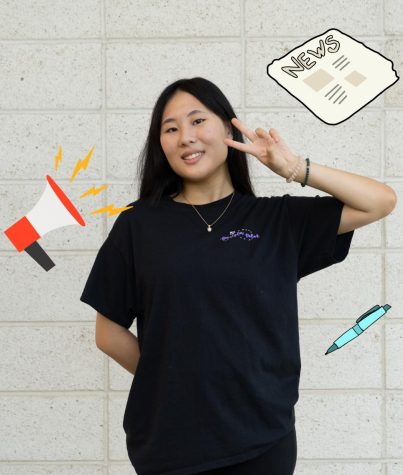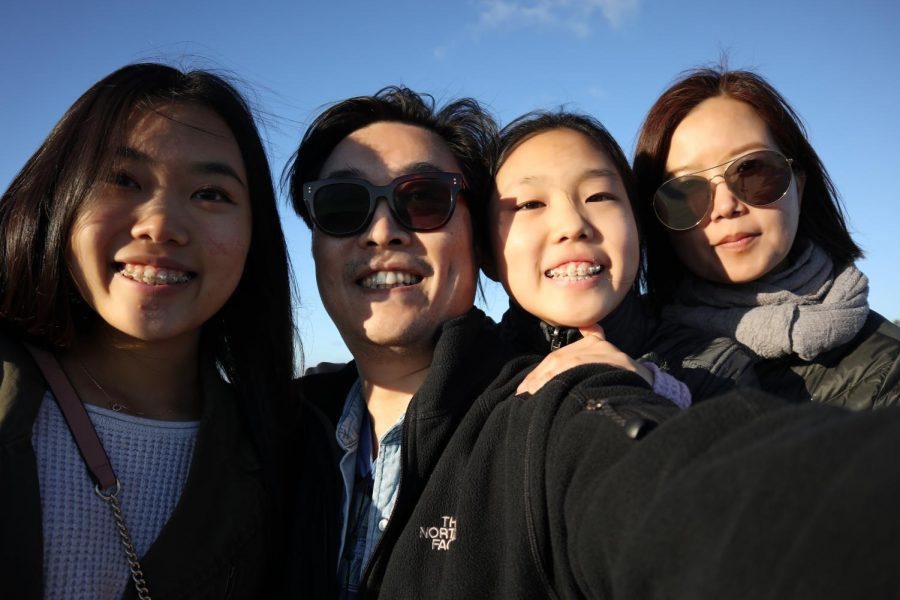Korean-American Traditions Make for Double the Holidays
Senior Angela Kim and freshman Rachel Kim’s father normally lives in Korea, but he always makes the visit back home for Christmas.
Senior Angela Kim and freshman Rachel Kim lived in Korea for four years before moving back to America. Though they cannot see their extended family this year, the sisters have found a way to still keep their two cultural worlds together for the holidays.
Back in Korea, Angela Kim and Rachel Kim would celebrate the holiday season with the entire extended family, including grandparents, great aunts and uncles, cousins and even relatives they did not know personally. Now, as the only branch of the Kim family that lives in America, the celebrations have been reduced to the four-person family.
“I feel like when we’re celebrating here with a family of four, it’s a lot more specialized because we listen to music that’s more niche to our family,” Angela Kim said. “We listen to a lot of old eighties Korean music, but over there it’s really busy, and the relatives are sort of in the corner, and my cousins and I are in a separate area.”
Some traditions remain the same between Korea and America.
In Korea, Christmas “reflects a feature of the American society, freedom, desire for the western modernity and an extreme commercialism involving expensive brands and upmarket department stores,” according to Forbes.
However, since Korea also observes Chuseok (Korean Thanksgiving) and Seollal (Korean New Year), Christmas is more of a one-week celebration, compared to an entire season in America.
“We celebrate [the holidays] with food from Korea like bulgogi and japchae and Korean barbeque, but also pasta and meatballs,” Angela Kim said. “My mom bought some meatballs from IKEA, so she could make a fusion meal for Christmas.”
Rachel Kim emphasized the significance of food during the holidays because it reflects the intermingling of her Korean-American cultural identity.
“Personally, I get to eat more cultural foods on the holidays [because] this is one of the times we go full-on out to make a lot of cultural food,” Rachel Kim said. “I feel like it’s a very American thing to spend time with your family and share or gift your food to your neighbors.”
Even though the way the sisters spend their holidays may differ from others, the main values of gratitude and togetherness remain the same.
“It’s really special because I really get the best of both worlds,” Angela Kim said. “If I feel more Korean one day, I can ask my mom for stories when she would celebrate certain holidays back then, but I can also teach different American ways of celebrating the same traditions. So really, I get to celebrate double the amount of holidays.”
Your donation will support the student journalists of Portola High School. Your contribution will allow us to purchase equipment and cover our annual website hosting costs.

Kate Hayashi is the co-editor-in-chief of the Portola Pilot. She draws all her writing inspiration from Michael Barbaro's "hmms" in “The Daily.” Outside...

Celine Lee is this year’s co-editor-in-chief for her third and final year on the Pilot! She is beyond excited to make the most out of her senior year...




